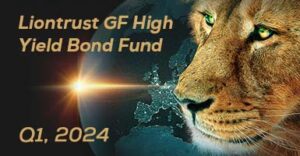 |
Stephen Yiu is the Chief Investment Officer at Blue Whale Capital and Lead Manager of the Blue Whale Growth Fund. Stephen co-founded Blue Whale Capital with Peter Hargreaves, co-founder of Hargreaves Lansdown, in 2016. The Blue Whale Growth Fund was launched in September 2017 and is a long-only global equity fund focusing on developed markets. Stephen adopts a high conviction, active approach based on bottom-up, fundamental research. |
In 1941, Einstein famously declared that “science without religion is lame, religion without science is blind”.
In the world of investing, this holds just as true if you replace “company research” with “science” and “valuation” with “religion”: the most detailed and accurate research is useless unless you also have a buy or sell decision based on valuation; similarly, an investment decision without a fundamental understanding of a business is no better than investing on the roll of the dice.
Identifying good companies is not enough. To succeed as a fund and successfully deliver consistent significant outperformance for our investors, we must convert insights gleaned from our hard work into action – and an important component of that process involves how we approach valuation.
Our views on Valuation
“Price is what you pay, value is what you get.”
This was what Warren Buffett reminded investors in his 2008 letter to shareholders. When we talk about valuation, we are laser-focused on the value that we’re paying for. Specifically, it’s the cashflows and the certainty of those cashflows coming from a business which give it value. This makes valuation intimately linked to our research process.
The research process is scientific: we can model a business based on detailed analysis of structural trends in the end market, the level of competition within the industry, and company-specific factors, then test our assumptions for projected cashflows against what the company delivers.
This takes a lot of hard work – it involves going to primary sources and industry publications to understand the dynamics of the sectors we’re looking at, trawling through company filings at the exchanges to build our own models and, most importantly, exercising good judgement when making assumptions for our own forecasts. We have dedicated significant resource to guarantee the quality of our research from day one.
Based on the conviction of our fundamental research, we often find opportunity where the market systematically underestimates longer term growth. This happens when the market price reflects consensus estimates of future growth rather than what is implied by our research. This is when we buy.
For the same reasons, when the market is getting ahead of our expectations, we will sell or find more attractive alternatives. This is why we reduced our position in Amazon in July 2020 and why we held more cash at the end of 2019 – putting us in an excellent position to top up our highest conviction holdings during the sell-off in 2020. This is how we exercise a strict valuation discipline.
The flexibility in our approach to valuation is that we are sector-agnostic. Right now, we see more value among high quality companies like PayPal, Amazon and others in the “tech sector”. If we see consumer staples companies demonstrating value like our “tech” holdings, then they too will feature more prominently in our portfolio.
What about macro?
We are often asked about our views on “macro” – encompassing both geopolitical and macroeconomic events. We answer every time that we do not take a view on how events will necessarily unfold – that requires predicting the unpredictable which is a fool’s errand – but we do take a view on how events could impact our portfolio at the company level, specifically, how it would impact the expected future cash-flows of our portfolio holdings.
This again is where our research process is intimately linked to our valuation framework: only with a sound understanding of a company’s business model can we reliably assess how it performs in adverse conditions. We stress test a company’s cash flows and earnings and if, even with conservative assumptions, the company fares better than consensus estimates, then we can have conviction that value is there. The majority of companies in our portfolio have passed such a “macro stress test”, and this was why our portfolio fared better than the broader market over the course of the last three years, through all the macroeconomic and geopolitical turmoil which we go through at the end of this article.
We are Value Investors!
We often describe ourselves as Value Investors. This sometimes gets people confused because they’re accustomed to self-styled Value Investors avoiding the types of companies that have done so well for our portfolio over the last three years. They are accustomed to seeing value funds buying low quality, low-growth, structurally declining (and often cyclical) businesses, then justifying these decisions based on “cheap valuations”.
We see things differently. We treat “value” as a verb, not a noun. To value a company involves a process of understanding the worth of its future cashflows beyond its present state. To make money doing so involves finding companies where the value we see is significantly greater than the price we have to pay. That is why we focus on high quality businesses with structural growth drivers – as outlined earlier – instead of slow-moving companies trading at low valuation multiples.
In doing so, we are following in the footsteps of the greatest value investors. Warren Buffett, having delegated a portion of his investment responsibilities to younger fund managers, last year defended their decision to buy Amazon, noting that they were “absolutely [as] much value investors as I was when I was looking around for all these things selling below working capital years ago.” Even Benjamin Graham, the father of value investing, concluded in his seminal work, “The Intelligent Investor”, that the majority of his post-World War Two fund returns came from a high quality, high growth insurance company, Geico – a company which Buffett would eventually absorb into Berkshire Hathaway.
How has our approach fared in practice?
Our first three years have been a “baptism-by-fire”, with unprecedented macroeconomic and geopolitical events rocking the investment landscape. In 2018, we had questionable monetary policy from the US Fed and we saw President Trump initiating a trade war on multiple fronts. Trade tensions continued in 2019 while uncertainty from Britain leaving the EU lasted throughout the year. Now in 2020, the global economy is still reeling from the worst global pandemic since the Spanish flu more than a hundred years ago.
Nevertheless, we have managed to deliver positive returns each year with a combination of our in-depth research process and strict valuation discipline. The graphs below show how we fared in 2018, 2019, and in 2020-to-date (30/11/2020).

LF Blue Whale Growth I class Acc shares, net of fees priced at midday UK time, source: Bloomberg. 2 IA Global Sector average, source: Lipper. Data as at 31/12/2017 to 30/11/2020.
We have relished the opportunity to test our approach under adverse market conditions and we are glad that we have been able to deliver consistent significant outperformance to our investors during both market rallies and sell-offs. This is what active management is all about, and this is only just the beginning for Blue Whale!
LF Blue Whale Growth Fund is manufactured by Blue Whale Capital LLP and represented in Malta by MeDirect Bank (Malta) plc.
Blue Whale Key Risks & Disclaimers:
The opinions, data, and analyses presented herein is issued for information only by Blue Whale Capital LLP (“Blue Whale”) which is a limited liability partnership incorporated in England and Wales under number OC414255. Blue Whale is authorised and regulated by the Financial Conduct Authority (“FCA”).
The contents presented herein are based upon sources of information believed to be reliable, however, save to the extent required by applicable law or regulations, no guarantee, warranty or representation (express or implied) is given as to its accuracy or completeness and, Blue Whale, its members, officers and employees do not accept any liability or responsibility in respect of the information or any views expressed herein. All data is sourced from Blue Whale unless otherwise stated.
The contents herein may include or may refer to documents that include forward-looking statements that are based upon our current opinions, expectations and projections. We undertake no obligation to update or revise any forward-looking statements. Actual results could differ materially from those anticipated in the forward-looking statements. The views we express on holdings do not constitute Investment Recommendations and must not be viewed as such.
There are significant risks associated with investment in the Fund referred to herein. Investment in the Fund is intended for investors who understand and can accept the risks associated with such an investment including potentially a substantial or complete loss of their investment.
Past performance is not a guide to future performance. The value of investments and any income derived from them can go down as well as up and the value of your investment may be volatile and be subject to sudden and substantial falls.
Investment in a Fund with exposure to emerging markets involves risk factors and special considerations which may not be typically associated with investing in more developed markets. Political or economic change and instability may be more likely to occur and have a greater effect on the economies and markets of emerging countries. Adverse government policies, taxation, restrictions on foreign investment and on currency convertibility and repatriation, currency fluctuations and other developments in the laws and regulations of emerging countries in which investment may be made, including expropriation, nationalisation or other confiscation could result in loss to the Fund.
Income from investments may fluctuate. Changes in rates of exchange may have an adverse effect on the value, price or income of investments. Fund charges may be applied in whole or part to capital, which may result in capital erosion. The Authorised Corporate Director may apply a dilution adjustment as detailed in the Prospectus. The Fund is not traded on an exchange or recognised market.
The foregoing list of risk factors is not complete, and reference should be made to the Fund’s Prospectus, KIID and application form.
MeDirect Disclaimers:
This information has been accurately reproduced, as received from Blue Whale Capital LLP. No information has been omitted which would render the reproduced information inaccurate or misleading. This information is being distributed by MeDirect Bank (Malta) plc to its customers. The information contained in this document is for general information purposes only and is not intended to provide legal or other professional advice nor does it commit MeDirect Bank (Malta) plc to any obligation whatsoever. The information available in this document is not intended to be a suggestion, recommendation or solicitation to buy, hold or sell, any securities and is not guaranteed as to accuracy or completeness.
The financial instruments discussed in the document may not be suitable for all investors and investors must make their own informed decisions and seek their own advice regarding the appropriateness of investing in financial instruments or implementing strategies discussed herein.
If you invest in this product you may lose some or all of the money you invest. The value of your investment may go down as well as up. A commission or sales fee may be charged at the time of the initial purchase for an investment and may be deducted from the invested amount therefore lowering the size of your investment. Any income you get from this investment may go down as well as up. This product may be affected by changes in currency exchange rate movements thereby affecting your investment return therefrom. The performance figures quoted refer to the past and past performance is not a guarantee of future performance or a reliable guide to future performance. Any decision to invest in a mutual fund should always be based upon the details contained in the Prospectus and Key Investor Information Document (KIID), which may be obtained from MeDirect Bank (Malta) plc.





